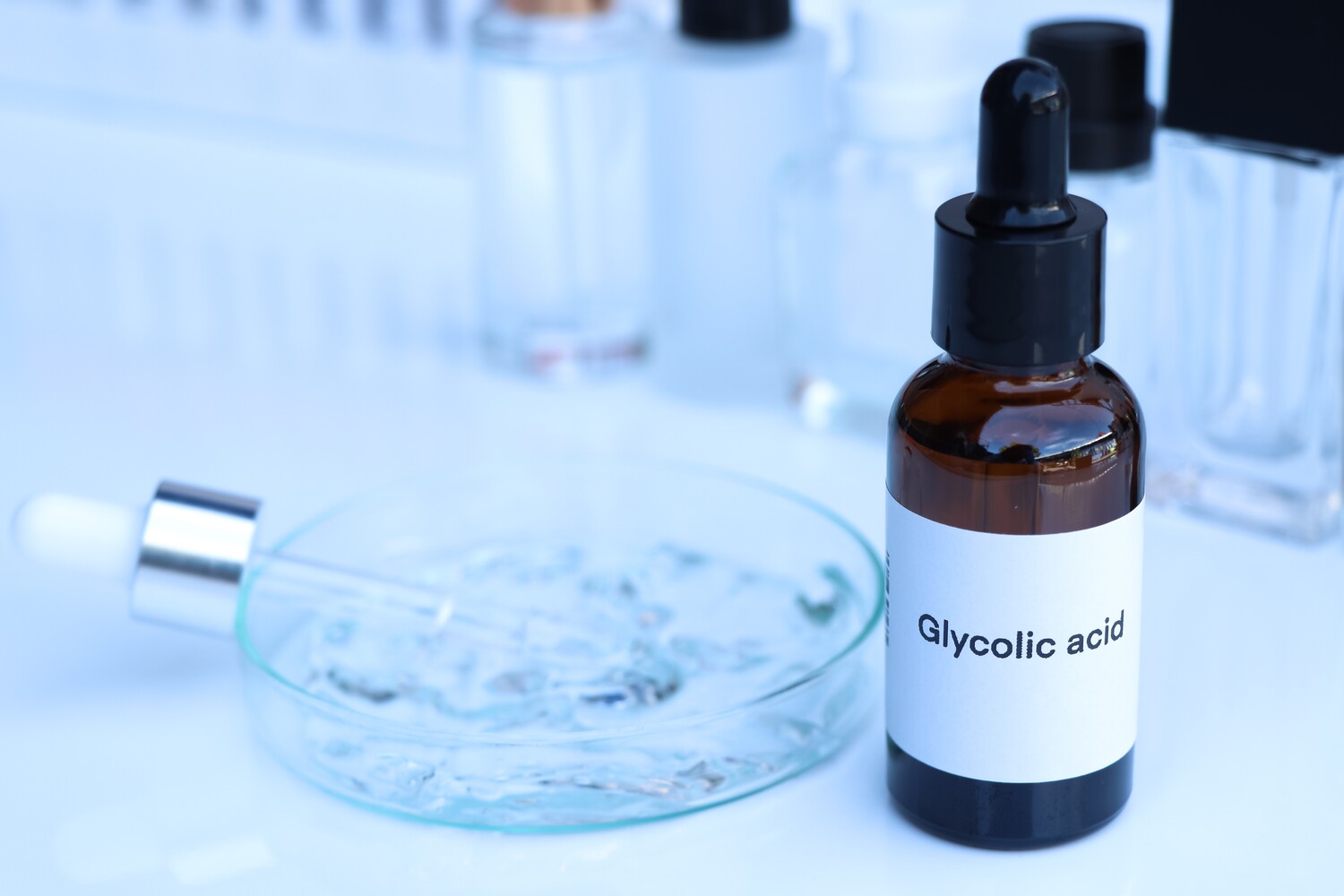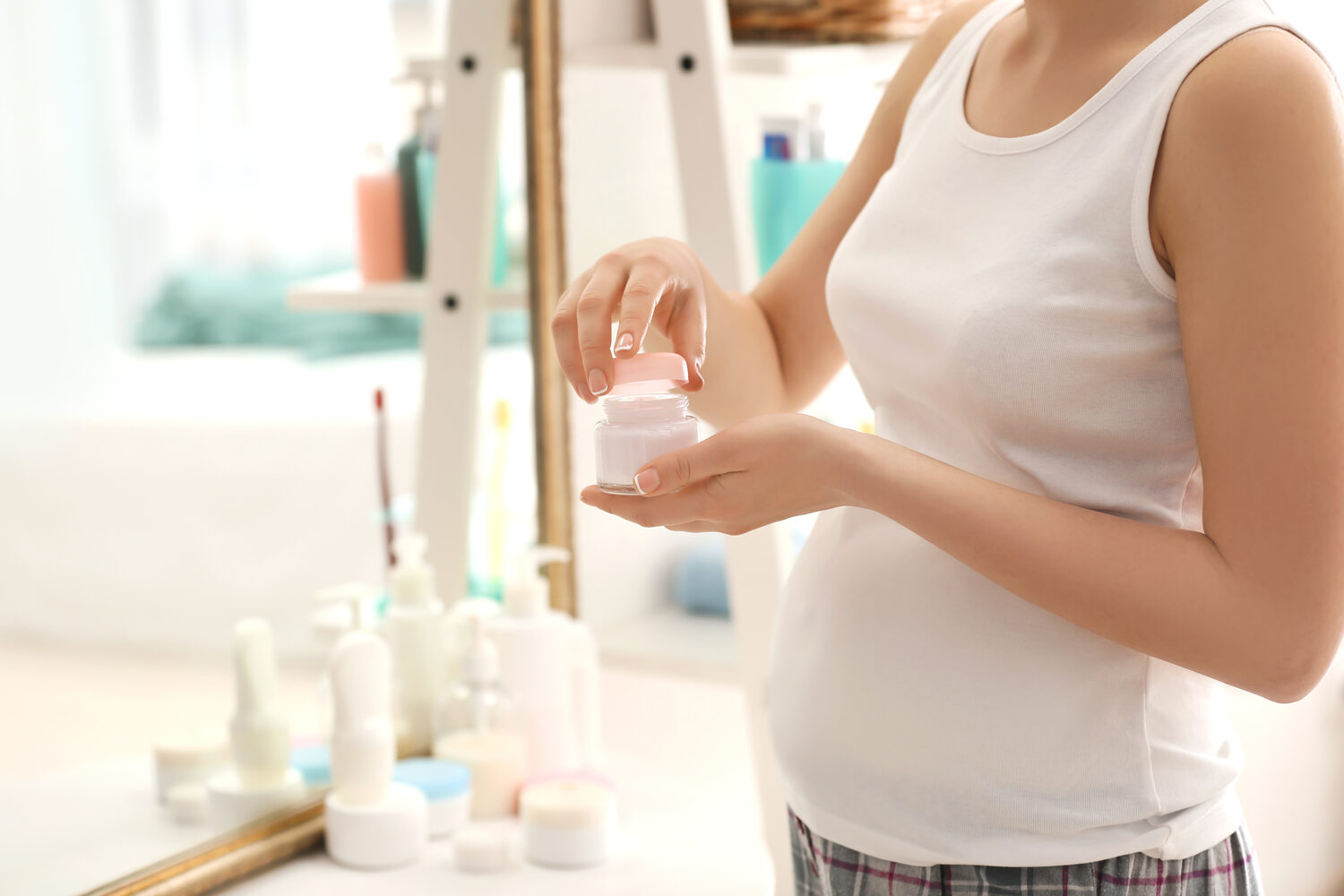
Many changes in the body come from pregnancy. Changes in the skin are often visible and it is a natural urge to take care of the skin if you find any changes that require attention. The skin care market is vast and picking the right medication when you are pregnant often comes with many questions about whether to use it or not. Glycolic acid is one such ingredient that is often seen in multiple skin care medications and is available as an over-the-counter medication. How safe is glycolic acid during pregnancy?
When it comes to skincare, glycolic acid is most commonly available and widely used in the skincare spectrum for treating acne, dark spots, and hyperpigmentation, which are the most commonly faced skin problems during pregnancy. Many products have different outcomes depending on their usage when you are pregnant, though they are considered safe in nonpregnancy. This article explains glycolic acid, its uses and how safe it is in pregnancy, whether it can be included in the skincare routine or not.
In This Article
- What is Glycolic Acid?
- How Does Glycolic Acid Work In Treating Acne?
- Is Glycolic Acid Safe During Pregnancy?
- Are Glycolic Acid Peels Safe During Pregnancy?
- What Are The Side Effects Of Glycolic Acid During Pregnancy?
- Precautions To Be Taken While Using Glycolic Acid During Pregnancy
- When Should You Consult A Dermatologist?
- FAQ’s
What is Glycolic Acid?
Glycolic acid is an Alpha Hydroxy Acid (AHA) with anti-acne properties. It is naturally obtained from sugar cane. It has a very small molecular structure so it can penetrate deeper into the layers of skin than other alpha-hydroxy acids, making it a widely used peeling agent (1). Glycolic acid is generally used in the treatment of outbreaks of acne, hyperpigmentation, and melasma (freckle-like spots on the face).
How Does Glycolic Acid Work In Treating Acne?

The action of glycolic acid comes from its keratolytic properties, meaning it can exfoliate the skin, getting rid of all the dead cells and promoting new skin cells. Glycolic acid can clear dead skin cells by preventing the clogging of skin pores, thus preventing the formation of acne. Consistent application of glycolic acid reduces fine lines and wrinkles. It also helps in decreasing outbreaks of pimples and reducing hyperpigmentation. (1)
Glycolic acid also normalizes keratinization and increases hyaluronic acid and collagen production in the skin layers, which keeps the skin healthy and elastic. Glycolic acid peels can acidify skin more than required so it is always neutralized with water or other basic solutions like ammonium, etc. Excess application might increase the acidification and cause burning to the skin, which needs to be avoided. (1b)
Is Glycolic Acid Safe During Pregnancy?
The majority of doctors recommend glycolic acid (GA) during pregnancy because it is generally considered safe. The US FDA has not classified glycolic acid in any of the categories as such but considers it safe during pregnancy as it has very minimal absorption into the blood or systemic circulation (2).
There are not many studies available on topical glycolic acid usage in pregnancy, but a few animal studies revealed that glycolic acid administered in high doses internally had severe reproductive effects, usually at higher doses than in topical applications available. (3).
Are Glycolic Acid Peels Safe During Pregnancy?

Glycolic acid is available in many forms in cleansers, creams, serums, and at-home treatments. But glycolic acid peels are generally applied at a hospital or clinic set up in the dermatologist’s office. It is the most commonly used alpha-hydroxy peel used for skin treatment. Even though a study on pregnant women with gestational acne reported no effects on pregnancy or the fetus (4), generally, glycolic acid peels are not considered safe during pregnancy due to their higher concentrations (5).
Glycolic acid peels contain more concentration than topical applications like creams and lotions containing glycolic acid. So it is advised to take peels only if necessary, as suggested by the doctor in the office setup (1c). A concentration of 7% of glycolic acid or less is generally considered safe during pregnancy.
What Are The Side Effects Of Glycolic Acid During Pregnancy?
The concentration of glycolic acid, timing of the peel, and neutralization on time play an important role in good results in-case of GA peeling. Fewer concentrations of GA are generally well tolerated.
The minor side effects that may be experienced are
- Erythema (Redness of skin)
- Eschar (a dark swab of dead skin)
- Stinging sensation
- The sensation of pulling facial skin in the case of peeling.
- Mild skin irritation or burning
- Short-term postinflammatory hyperpigmentation.
If no buffering agent is used, erosive blisters or scarring can occur.
Few cases are reported with persistent erythema and flare-ups of pimples.
Epidermolysis (blisters all over the skin) may occur if you use anti-acne, skin lighteners, or topical retinoids in the days before the peeling. It is generally advised not to use any of the skin priming agents before one week of peeling to avoid the above disturbances. It’s always advised to consult the doctor about what can and can not be used with Glycolic Acid (1)(6).
Precautions To Be Taken While Using Glycolic Acid During Pregnancy

It’s always better to be on the preventive side and follow a few precautions rather than be sorry later for the unwanted effects, especially during pregnancy. There are indeed certain precautions to be taken when using Glycolic Acid.
1. Sensitive Skin
If you have sensitive skin and are allergic to glycolic acid please refrain from using it. If you are on any other skin treatments do not use glycolic acid as it may aggravate redness and skin sensitivity. Talk to your doctor before considering using it.
2. Sunlight Exposure
When you are using any Alpha Hydroxy Acids you will become more sensitive to UV rays. Apply a good sunscreen spf suggested by your doctor. Please avoid unnecessary exposure to the sun.
3. Using Other AHA’s
Glycolic acid is one type of AHA, using similar type category products might irritate your skin more and cause severe redness and irritation or inflammation sometimes. Choose one and stick to one product. Do not use more than one similar category at a time.
4. Scrubbing Agents
Glycolic acid itself works like a scrubber, removing all dead cells. Do not use any other exfoliating agent that might cause more irritation and redness, which is quite unnecessary while using glycolic acid.
5. Strength of the Glycolic Acid
Every product labels the concentration of the component present. Please check the concentration while choosing the product. Generally, less than 7% concentration of glycolic acid is considered safe during pregnancy. Avoid exposure to high concentrations (7).
When Should You Consult A Dermatologist?
General outbreaks of acne and hyperpigmentation are quite common during pregnancy and might get resolved on their own. If you are observing a frequent and chronic outbreak of acne or severe hyperpigmentation, please consult the doctor and get a treatment plan accordingly before using the medication. Do not use any medication without consulting the doctor for the safety of both the mother and the fetus.
Glycolic acid is used for treating acne, hyperpigmentation, and melasma. Glycolic acid exfoliates the existing dead cells on the surface, and therefore a production of new cells is generated. It helps to clean the clogged pores and helps to prevent acne formation, therefore. It can be used in pregnancy and is considered safe in low doses, like less than 7% concentration at any stage. Glycolic acid peels are not encouraged during pregnancy due to their high concentration and may have fetal risks, according to a few studies. It is always advised to take only the doctor’s recommendation for a better understanding and better results of the product. Persistent side effects, if any, may need medical attention.
FAQ’s
1. Are AHA and BHA Safe During Pregnancy?
Alpha hydroxy acids like Glycolic Acid and Lactic Acid are considered safe during pregnancy in lower concentrations, whereas Beta Hydroxy Acid like Salicylic Acid with more than 2% concentration is not safe and may have effects during pregnancy as per doctors’ recommendations.
2. Can I Use Niacinamide While Pregnant?
Niacinamide is used to treat fine lines and wrinkles. It is considered safe during pregnancy by the US FDA and has not shown any risk to the mother or fetus.
3. What Skincare Ingredients to Avoid in Pregnancy?
Any skin care products containing retinol, retinoids, formaldehyde, hydroquinone, salicylic acid, phthalates, parabens, essential oils, benzoyl peroxide, thioglycolic acid, aluminum components, toluene, Botox, fillers, etc. should be avoided during pregnancy and may pose a risk to the mother and fetus, studies say.
References
- Glycolic acid peel therapy: a current review – [https://www.ncbi.nlm.nih.gov/pmc/articles/PMC3875240/]
- Skin Changes and Safety Profile of Topical Products During Pregnancy – [https://www.ncbi.nlm.nih.gov/pmc/articles/PMC8884185/]
- Safety of skin care products during pregnancy – [https://www.ncbi.nlm.nih.gov/pmc/articles/PMC3114665/]
- A review of the safety of cosmetic procedures during pregnancy and lactation – [https://pubmed.ncbi.nlm.nih.gov/28492048/]
- Glycolic Acid – [http://eknygos.lsmuni.lt/springer/93/13-21.pdf]
- Chemical peels in the treatment of acne: patient selection and perspectives -[https://www.ncbi.nlm.nih.gov/pmc/articles/PMC6053170/]
- Developmental Toxicity Study of Glycolic Acid in Rats – [https://www.tandfonline.com/doi/abs/10.3109/01480549908993168]
